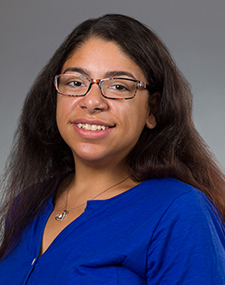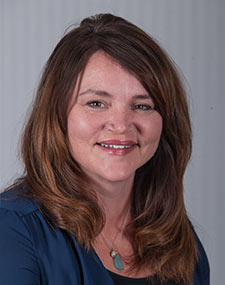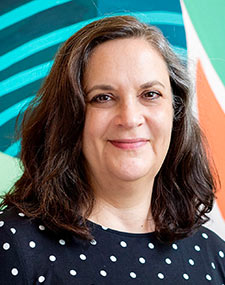National Center for Computer Science Education
The National Center for Computer Science Education champions, researches and provides equitable computer science education opportunities for K16 students and educators.
Mission and Background
 The National Center for Computer Science Education is a partnership of the Computer Information Systems (CIS) department, the Education department, and the Stender School of Leadership, Business and Professional Studies at The College of St. Scholastica. The Center champions, researches and provides equitable computer science education opportunities for K-16 students and educators. Through its efforts, the Center serves as a national leader for computer science education and research at a critical time when there is significant momentum to achieve CS for all students.
The National Center for Computer Science Education is a partnership of the Computer Information Systems (CIS) department, the Education department, and the Stender School of Leadership, Business and Professional Studies at The College of St. Scholastica. The Center champions, researches and provides equitable computer science education opportunities for K-16 students and educators. Through its efforts, the Center serves as a national leader for computer science education and research at a critical time when there is significant momentum to achieve CS for all students.
The National Center for Computer Science Education serves as a national leader for education and research at a critical time when there is significant momentum through the CSforAll movement. CSS is one of less than 10 schools in the country that have both pre- and in-service teacher education in Computer Science and is considered an expert in online computer science (CS) professional development.
What Does CSforAll Mean to Us?
Equitable participation means that all students have access to high-quality opportunities to learn computer science. This includes students historically marginalized in CS such as females, Blacks, Hispanics, Native Americans, English learners, students with disabilities, rural students and others. Equitable participation requires early exposure to CS in order to combat stereotypes and beliefs about who can do computing. CS should be part of the required curriculum for all students — not just an optional class or after-school activity. For those students who want to explore CS in more depth, it is essential that additional courses at the secondary level are open to all students. Understanding computing and its impacts on our society is a foundational skill for students (and teachers) to succeed in the 21st century. Our programs help prepare educators to teach all students computer science and support the pathways between K-12 and higher education.
What is Computer Science (CS)?
For years, schools have emphasized the importance of students learning to use technology. However, this often means a focus on helping students consume technology, using computers, apps, and the Internet. By learning about computer science, students are empowered to become creators of technology, playing an active role in developing the next generation of technology while applying deeper critical thinking skills to existing technology.
The K12 CS Framework and CSTA K12 Standards use the following definition: the study of computers and algorithmic processes, including their principles, their hardware and software designs, their [implementation], and their impact on society” (Tucker et. al, 2003, p. 6).
Contact Us
If you have questions about the National Center for CS Education, email us at csed@css.edu.
Programs and Staff
Programs
The National Center for Computer Science Education provides support in creating equitable CS education opportunities to K16 educators and students through the following programs and projects.
Certificate in Computer Science Education
An online graduate, education certificate for in-service teachers with four courses: Computational Thinking, Computer Science Principles, Java, and CS Methods & Capstone. K12 teachers across the United States complete the certificate to further their understanding of CS, to integrate CS in other courses, to teach standalone CS courses, and to meet CS licensure requirements for their state.
Learn More about the Certificate
Mobile CSP (Computer Science Principles)
 Curriculum and professional development for high school teachers offering the new AP Computer Science Principles course. Mobile CSP is endorsed by the College Board. Mobile CSP also offers a Concurrent Enrollment (CE)/Dual Enrollment option for those who are interested in offering college-level CS classes in high schools in partnership with a local community college or university.
Curriculum and professional development for high school teachers offering the new AP Computer Science Principles course. Mobile CSP is endorsed by the College Board. Mobile CSP also offers a Concurrent Enrollment (CE)/Dual Enrollment option for those who are interested in offering college-level CS classes in high schools in partnership with a local community college or university.
CSAwesome (Computer Science A)
![]()
Curriculum and professional development for high school teachers offering the AP Computer Science A (Java programming) course. CSAwesome was piloted in 2019-20 and is now endorsed by the College Board. The curriculum is available for free via Runestone Academy. A variety of professional development opportunities are available.
TeachCS
 Revising pre-service education programs to include computational thinking and computer science to future educators.
Revising pre-service education programs to include computational thinking and computer science to future educators.
K-12 CS Pathways
This NSF-funded research-practitioner partnership (RPP) grant involves members of NCCSE working with teachers, specialists and administrators from two schools involved in the project. The goal of this project is to develop sustainable computer science (CS) pathways in rural and tribal schools. Each school introduces CS to all students early in school and provides multiple opportunities to engage with CS during their K-12 learning experience. The school CS pathways are developed through (1) the creation of a CS implementation plan based on a school-specific scope and sequence, (2) the design of sustainable CS professional development, and (3) identifying needs and supports for historically marginalized groups including Native Americans, special-education students and those of low socioeconomic status.
Learn More about K-12 CS Pathways
CS4DLH
 CS4DLH is a group of leaders from NCCSE, Duluth Public Schools, and Upward Bound working to support and accelerate opportunities for Minnesota students to have opportunities to learn computer science. CS4DLH is involved with two projects: (1) providing hands-on CS learning activities and career exploration for students and families in the Upward Bound and Upward Bound Math Science programs in December 2022, aimed at increasing awareness of and interest in computer science and computer science career opportunities. (2) By the end of the 2023 school year, project members will have trained at least 35 K-12 teachers in the Duluth School District that will be able to adapt and use a CS-curated lesson in their class. The CS4DLH project was started in 2021 as a collaboration between NCCSE, the City of Duluth, and Infosys Foundation USA. Since then, the program has added collaborations with Upward Bound and gained funding from CSforALL’s Accelerator program.
CS4DLH is a group of leaders from NCCSE, Duluth Public Schools, and Upward Bound working to support and accelerate opportunities for Minnesota students to have opportunities to learn computer science. CS4DLH is involved with two projects: (1) providing hands-on CS learning activities and career exploration for students and families in the Upward Bound and Upward Bound Math Science programs in December 2022, aimed at increasing awareness of and interest in computer science and computer science career opportunities. (2) By the end of the 2023 school year, project members will have trained at least 35 K-12 teachers in the Duluth School District that will be able to adapt and use a CS-curated lesson in their class. The CS4DLH project was started in 2021 as a collaboration between NCCSE, the City of Duluth, and Infosys Foundation USA. Since then, the program has added collaborations with Upward Bound and gained funding from CSforALL’s Accelerator program.
Coaching for Equity in CS
 Coaching for Equity in CS aims to support and scale coaching within schools as a means of ongoing support for CS teachers. One-on-one coaching for high school computer science teachers is provided through two coaching programs: one nationally by NCCSE and another in Minnesota by CodeSavvy. Both coaching programs follow an instructional coaching model designed around the CSTA Standards for CS Teachers and focus specifically on equitable teaching practices.
Coaching for Equity in CS aims to support and scale coaching within schools as a means of ongoing support for CS teachers. One-on-one coaching for high school computer science teachers is provided through two coaching programs: one nationally by NCCSE and another in Minnesota by CodeSavvy. Both coaching programs follow an instructional coaching model designed around the CSTA Standards for CS Teachers and focus specifically on equitable teaching practices.
Learn more about Coaching for Equity in CS
Undergraduate CIS
Infusing best practices in pedagogy and support to recruit and retain underrepresented students in the Computer Information Systems major.
Minor in Computer Science Education (in progress)
An undergraduate minor designed for pre-service teachers, including CIS and EDU courses.
CSforAll-MN Minnesota ECEP Alliance
CSforAll-MN is a collaborative effort by leaders in education, industry, nonprofit organizations and higher education institutions from across Minnesota dedicated to advancing equitable computer science education policies and opportunities for every K-12 student in the state. We work toward that goal by recommending state-level computing education policies; convening shareholders across the state to create connections; listening to diverse voices; gathering statewide data to share with policymakers, leaders, schools and families; and sharing research- and practice-based resources.
Learn More about CSforAll-MN Minnesota ECEP Alliance
Partnerships
Interested in partnering with the NCCSE to bring CS education to your organization or in collaborating on a research project? Please contact us at csed@css.edu.
Staff
Renee Fall, Senior Research Scholar
Renee Fall leads research and collaboration projects aimed at increasing diversity in computing, particularly in postsecondary education. Prior to joining the Center, she was co-PI of the national Expanding Computing Education Pathways Alliance (www.ECEPalliance.org) and project manager of the Commonwealth Alliance for Information Technology Education (MA), both NSF-sponsored efforts to broaden participation in computing. She played a key role in bringing Exploring Computer Science and Computer Science Principles to Massachusetts high schools. Her career in higher education has included inter-institutional collaborations; women’s/gender studies, diversity and equity; continuing and online education; grant development and publishing. She earned an EdS in higher education research, policy, and leadership from the University of Massachusetts Amherst, a master’s degree from Harvard Divinity School and a BA in communications and religion at Gustavus Adolphus College in Minnesota.
Pauline Lake, Curriculum and Professional Development Coordinator
 Pauline Lake is the curriculum and professional development coordinator for the Mobile CSP and CSAwesome programs. She also serves on the Coaching for Equity in CS project team and is an adjunct faculty for the CS Education workshops at St. Scholastica. A 2013 graduate of Trinity College with a double major in Computer Science and Educational Studies, Pauline has taught App Inventor to middle- and high-school students since 2010. She has also taught the introductory Computing with Mobile Phones course at Trinity College and has served as a mentor for Computer Science students in various capacities. Pauline also earned a Master’s in Public Policy with a concentration in Educational Policy at Trinity College and is working toward completion of the St. Scholastica Project Management Certificate program by the end of Spring 2023.
Pauline Lake is the curriculum and professional development coordinator for the Mobile CSP and CSAwesome programs. She also serves on the Coaching for Equity in CS project team and is an adjunct faculty for the CS Education workshops at St. Scholastica. A 2013 graduate of Trinity College with a double major in Computer Science and Educational Studies, Pauline has taught App Inventor to middle- and high-school students since 2010. She has also taught the introductory Computing with Mobile Phones course at Trinity College and has served as a mentor for Computer Science students in various capacities. Pauline also earned a Master’s in Public Policy with a concentration in Educational Policy at Trinity College and is working toward completion of the St. Scholastica Project Management Certificate program by the end of Spring 2023.
Chery Lucarelli, Facilitator of Educational Innovation
 Professor and Chair of Graduate Education Programs, Dr. Lucarelli oversees several graduate education programs, including the nationally ranked online Master of Education program and the Graduate Teacher Licensure program at the College of St. Scholastica. Dr. Lucarelli is committed to supporting inclusive learning and work environments, believing they provide the best opportunity for innovation. Dr. Lucarelli is the PI on the TeachCS@CSS grant funded by Google and the Co-PI on a National Science Foundation CS10K grant to scale up CS teacher professional development by leveraging online communities of practice. She is an experienced K12 teacher and licensed school administrator. Her research interests include innovation in higher education, online learning, educational technology, teacher preparation and teacher professional development.
Professor and Chair of Graduate Education Programs, Dr. Lucarelli oversees several graduate education programs, including the nationally ranked online Master of Education program and the Graduate Teacher Licensure program at the College of St. Scholastica. Dr. Lucarelli is committed to supporting inclusive learning and work environments, believing they provide the best opportunity for innovation. Dr. Lucarelli is the PI on the TeachCS@CSS grant funded by Google and the Co-PI on a National Science Foundation CS10K grant to scale up CS teacher professional development by leveraging online communities of practice. She is an experienced K12 teacher and licensed school administrator. Her research interests include innovation in higher education, online learning, educational technology, teacher preparation and teacher professional development.


